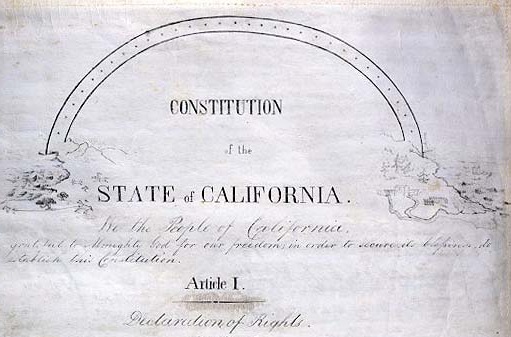
Justice Court. (Photo: Nirat.pix/Shutterstock)
California Courts and the Governor’s Emergency Proclamations
This is an example of the separation of powers doctrine in action
By Chris Micheli, January 2, 2025 2:30 am
Article IV, Sections 3(b) and 10(f) deal with the Governor’s power to issue emergency proclamations related to special sessions. How have the California courts review this power?
“Plaintiffs last contend that Assembly Bill 1X 26 is unconstitutional under Article IV, section 3(b) and Article IV, section 10, subdivision (f) because it exceeds the scope of the Governor’s emergency proclamation.” Article IV, section 3(b) provides: “On extraordinary occasions the Governor by proclamation may cause the Legislature to assemble in special session. When so assembled it has power to legislate only on subjects specified in the proclamation but may provide for expenses and other matters incidental to the session.”
“First, Governor Brown did not invoke Article IV, section 3(b) when issuing his emergency proclamation in January 2011. The Governor, instead, relied on Article IV, section 10, subdivision (f). (“NOW, THEREFORE, I, EDMUND G. BROWN JR., Governor of the State of California, in accordance with Section 10(f) of Article IV of the Constitution of the State of California, HEREBY DETERMINE. . ..”)
“That constitutional provision provides in part: ‘If, following the enactment of the budget bill for the 2004-05 fiscal year or any subsequent fiscal year, the Governor determines that, for that fiscal year, General Fund revenues will decline substantially below the estimate of General Fund revenues upon which the budget bill for that fiscal year, as enacted, was based, or General Fund expenditures will increase substantially above that estimate of General Fund revenues, or both, the Governor may issue a proclamation declaring a fiscal emergency and shall thereupon cause the Legislature to assemble in special session for this purpose.” (Cal. Const., art. IV, § 10, subd. (f)(1).) Whether Assembly Bill 1X 26 is proper under Article IV, section 3(b), then, is irrelevant.
“Plaintiffs’ second argument—that Assembly Bill 1X 26 exceeds the scope of the Governor’s emergency proclamation because it had effects beyond fiscal year 2011-2012—is likewise without merit. Rather than citing any supporting authority, plaintiffs instead recycle their argument that the Legislature could have addressed the declared fiscal crisis in a different manner. As noted above, that the Legislature could have proceeded differently does not mean it was required to do so.
“Legislators, as the people’s duly elected representatives, can choose to address complex problems in more than one way. (See, e.g., People v. McKee (2010) 47 Cal.4th 1172, 1221 [recognizing the Legislature’s ability to address societal problems in various ways].) Indeed, the very breadth and complexity of the projected $25 billion budget shortfall for fiscal year 2011-2012 suggests that there was more than one constitutionally permissible method of solving the fiscal crisis.
“Assembly Bill 1X 26 helped alleviate the declared fiscal crisis by boosting state revenues for fiscal year 2011-2012 and by helping to balance the budget. That is all article IV, section 10, subdivision (f) requires. (Cal. Const., art. IV, § 10, subd. (f)(1) [“the Governor may issue a proclamation declaring a fiscal emergency and shall thereupon cause the Legislature to assemble in special session for this purpose”].)”
Essentially, both the Governor’s general special session power under Section 3(b) or fiscal emergency special session power under Section 10(f) are viewed broadly and not likely to be second-guessed by the judicial branch. And, how the Legislature responds, other than assembling for the special session, is in their discretion as well. This is an example of the separation of powers doctrine in action – as long as there is a reasonable basis for the legislative branch or the executive branch to act, the judicial branch is not going to interfere.
- Designating ‘Spot’ Bills in the California Legislature - March 2, 2026
- Regulatory Powers of the Fish and Game Commission - March 2, 2026
- Committee Versus Floor Lobbying - March 1, 2026



